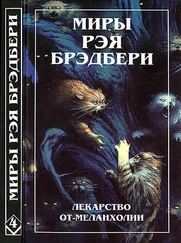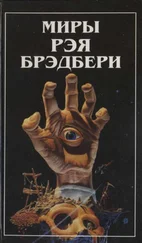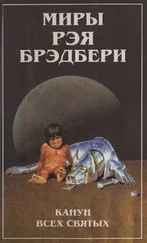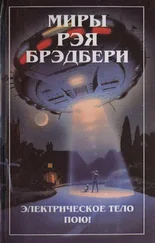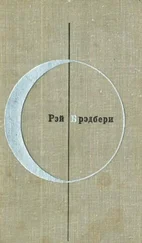Рэй Брэдбери - Interim (Time Intervening)
Здесь есть возможность читать онлайн «Рэй Брэдбери - Interim (Time Intervening)» весь текст электронной книги совершенно бесплатно (целиком полную версию без сокращений). В некоторых случаях можно слушать аудио, скачать через торрент в формате fb2 и присутствует краткое содержание. Жанр: Классическая проза, на английском языке. Описание произведения, (предисловие) а так же отзывы посетителей доступны на портале библиотеки ЛибКат.
- Название:Interim (Time Intervening)
- Автор:
- Жанр:
- Год:неизвестен
- ISBN:нет данных
- Рейтинг книги:5 / 5. Голосов: 1
-
Избранное:Добавить в избранное
- Отзывы:
-
Ваша оценка:
- 100
- 1
- 2
- 3
- 4
- 5
Interim (Time Intervening): краткое содержание, описание и аннотация
Предлагаем к чтению аннотацию, описание, краткое содержание или предисловие (зависит от того, что написал сам автор книги «Interim (Time Intervening)»). Если вы не нашли необходимую информацию о книге — напишите в комментариях, мы постараемся отыскать её.
One More for the Road (На посошок)
Bradbury Stories: 100 of His Most Celebrated Tales (Сборник ста лучших рассказов)
Interim (Time Intervening) — читать онлайн бесплатно полную книгу (весь текст) целиком
Ниже представлен текст книги, разбитый по страницам. Система сохранения места последней прочитанной страницы, позволяет с удобством читать онлайн бесплатно книгу «Interim (Time Intervening)», без необходимости каждый раз заново искать на чём Вы остановились. Поставьте закладку, и сможете в любой момент перейти на страницу, на которой закончили чтение.
Интервал:
Закладка:
Ray Bradbury
Interim (Time Intervening)
Very late on this night, the old man came from his house with a flashlight in his hand and asked of the little boys the object of their frolic. The little boys gave no answer, but tumbled on in the leaves.
The old man went into his house and sat down and worried. It was three in the morning. He saw his own pale, small hands trembling on his knees. He was all joints and angles, and his face, reflected above the mantel, was no more than a pale cloud of breath exhaled upon the mirror.
The children laughed softly outside, in the leaf piles.
He switched out his flashlight quietly and sat in the dark. Why he should be bothered in any way by playing children he could not know. But it was late for them to be out, at three in the morning, playing. He was very cold.
There was a sound of a key in the door and the old man arose to go see who could possibly be coming into his house. The front door opened and a young man entered with a young woman. They were looking at each other softly and tenderly, holding hands, and the old man stared at them and cried, «What are you doing in my house?»
The young man and the young woman replied, «What are you doing in our house? Here now, old man, get on out!» And the young man took the old man by the elbow, searched him to see if he had stolen anything, and shoved him out the door and closed and locked it.
«This is my house. You can't lock me out!» The old man beat at the door, then stood back in the dark morning air and looked up at the lights shining in the warm windows and rooms upstairs and then, with a motion of shadows, going out. The old man walked down the street and came back and still the small boys rolled in the icy morning leaves, not seeing him.
He stood before the house as he watched the lights turned on and turned off more than a few thousand times as hе counted softly under his breath.
A boy of about fourteen ran up to the house, a football in his hand, and opened the door without unlocking it and went in. The door closed.
Half an hour later, with the morning wind rising, the old man saw a car pull up and a plump woman get out with a little boy three years old. As they walked across the wet lawn the woman looked at the old man and said, «Is that you, Mr. Terle?»
«Yes,» said the old man automatically, for somehow he didn't wish to frighten her. But it was a lie. He knew he was not Mr. Terle at all. Mr. Terle lived down the street.
The lights glowed on and off a thousand more times.
The children rustled softly in the leaves.
A seventeen-year-old boy bounded across the street, smelling faintly of the smudged lipstick on his cheek, almost knocked the old man down, cried, «Sorry!» and leaped up the porch steps and went in.
The old man stood there with the town lying asleep on all sides of him; the unlit windows, the breathing rooms, the stars all through the trees, liberally caught and held on winter branches, like so much snow suspended glittering on the cold air.
«That's my house; who are all those people going in and out?» the old man cried to the wrestling children.
The wind blew, shaking the empty trees.
In the year which was 1923 the house was dark. A car drove up before it; the mother stepped from the car with her son William, who was three. William looked at the dusky morning world and saw his house and as he felt his mother lead him toward the house he heard her say, «Is that you, Mr. Terle?» and in the shadows by the great wind-filled oak tree an old man stood and replied, «Yes.» The door closed.
In the year which was 1934 William came running in the summer night, feeling the football cradled in his hands, feeling the murky night street pass under his running feet, along the sidewalk. He smelled, rather than saw, an old man as he ran past. Neither of them spoke. And so, on into the house.
In the year 1937 William ran with antelope boundings across the street, a smell of lipstick on his face, a smell of someone young and fresh upon his cheeks; all thoughts of love and deep night. He almost knocked the stranger down, cried, «Sorry!» and ran to open the front door.
In the year 1947 a car stopped before the house, William relaxed, his wife beside him. He wore a fine tweed suit, it was late, he was tired, they both smelled faintly of too many drinks offered and accepted. For a moment they both heard the wind in the trees. They got out of the car and let themselves into the house with a key. An old man came from the living room and cried, «What are you doing in my house?»
«What are you doing in our house?» said William. «Here now, old man, get on out.» And William, feeling faintly sick in his stomach, for there was something about the old man that made him feel cold, searched the old man and pushed him out the door and closed and locked it. From outside the old man cried, «This is my house. You can't lock me out!»
They went up to bed and turned out the lights.
In the year 1928 William and the other small boys wrestled on the lawn, waiting for the time when they would leave to watch the circus come chuffing into the pale-dawn railroad station on the blue metal tracks. In the leaves they lay and laughed and kicked and fought. An old man with a flashlight came across the lawn. «Why are you playing here on my lawn at this time of morning?» asked the old man.
«Who are you?» replied William, looking up a moment from the tangle.
The old man stood over the tumbling children a long moment. Then he dropped his flash. «Oh, my dear boy, know now, now I know!» He bent to touch the boy. «I am you and you are me. I love you, my dear boy, with all of my heart! Let me tell you what will happen to you in the years to come! If you knew! My name is William-so is yours! And all these people going into the house, they are William, they are you, they are me!» The old man shivered. «Oh, all the long years and time passing!»
«Go away,» said the boy. «You're crazy.»
«But―» said the old man.
«You're nuts! I'll call my dad!»
The old man backed off and walked away.
There was a flickering of the house lights, on and off. The boys wrestled quietly and secretly in the rustling leaves. The old man stood in shadow on the dark lawn.
Upstairs, in his bed, in the year 1947, William Latting did not sleep. He sat up, lit a cigarette, and looked out the window. His wife was awake. «What's wrong?» she asked.
«That old man,» said William Latting. «I think he's still down there, under the oak tree.»
«Oh, he couldn't be,» she said.
William drew quietly on his cigarette and nodded. «Who are those kids?»
«What kids?»
«On the lawn there. What a helluva time of night to be messing around in the leaves!»
«Probably the Moran boys.»
«Hell! At this hour? No, no.»
He stood by the window, eyes shut. «You hear something?»
«What?»
«A baby crying. Somewhere…?»
«I don't hear anything,» she said.
She lay listening. They both thought they heard running footsteps on the street, the front doorknob turn. William Latting went to the hall and looked down the stairs but saw nothing.
In the year 1937, coming in the door, William saw a man in a dressing gown at the top of the stairs, looking down, with a cigarette in his hand. «That you, Dad?» No answer. The man upstairs sighed and stepped back in darkness. William walked to the kitchen to raid the icebox.
The children wrestled in the soft, dark leaves of morning.
William Latting said, «Listen.»
He and his wife listened.
«It's that old man,» said William, «crying.»
«Why?»
«Why does anyone cry? Maybe he's unhappy.»
«If he's still there in the morning,» said his wife in the dark, «call the police.»
Читать дальшеИнтервал:
Закладка:
Похожие книги на «Interim (Time Intervening)»
Представляем Вашему вниманию похожие книги на «Interim (Time Intervening)» списком для выбора. Мы отобрали схожую по названию и смыслу литературу в надежде предоставить читателям больше вариантов отыскать новые, интересные, ещё непрочитанные произведения.
Обсуждение, отзывы о книге «Interim (Time Intervening)» и просто собственные мнения читателей. Оставьте ваши комментарии, напишите, что Вы думаете о произведении, его смысле или главных героях. Укажите что конкретно понравилось, а что нет, и почему Вы так считаете.



